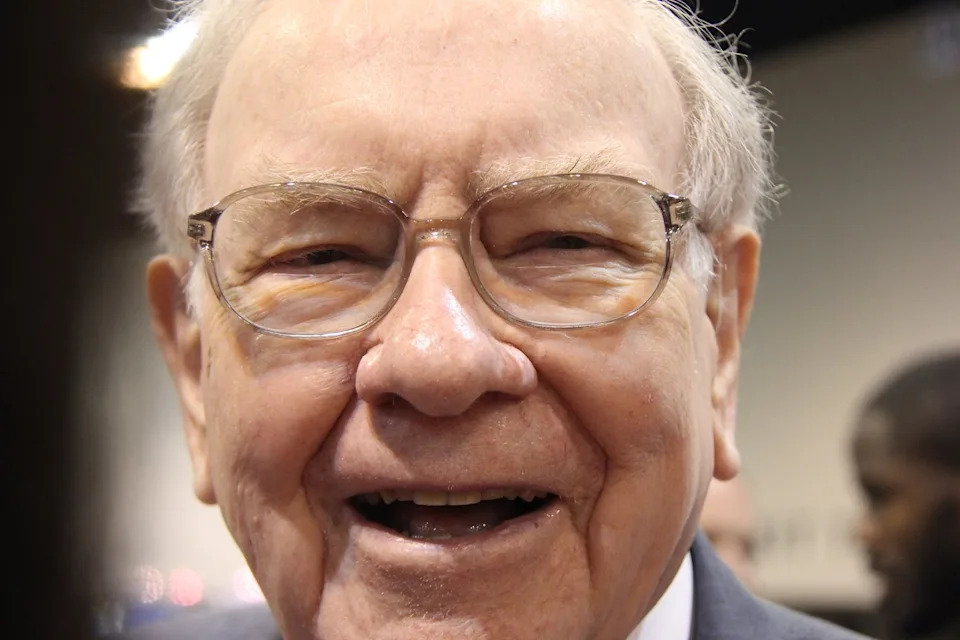Key Points
Warren Buffett and his company, Berkshire Hathaway , have never paid a dividend, primarily because Buffett has always believed that he could deploy capital in a more rewarding manner for shareholders. Over six decades, the Oracle of Omaha has proven that thesis. But that doesn't mean Buffett and his team of investors don't like investing in stocks that pay dividends. After all, what's better than knowing that every year, your investments will generate passive income even if their stock doesn't always perform as well as expected? This year, Buffett and Berkshire will collect over $1.3 billion in passive income from their investments in these two stocks.
Chevron: $811 million in annual dividends
Buffett and Berkshire have shown a keen interest in U.S. domestic oil and energy producers in recent years, and even though the price of oil per barrel has remained subdued, Buffett clearly believes that oil and gas will continue to be in demand and that prices will eventually rise. This thesis has led Berkshire to purchase over 118.6 million shares of Chevron (NYSE: CVX) , which consumed slightly under 6% of Berkshire's portfolio at the end of the first quarter of the year. That also makes Chevron Berkshire's fifth largest equity holding.

Chevron has paid a quarterly dividend of $1.71 per share for the first two quarters of the year and currently pays a roughly 5% dividend yield. Assuming this continues, and assuming Berkshire holds its stake in the company constant, Berkshire will collect close to $811.3 million in dividends from Chevron this year.
The Houston, Texas-based company has a good dividend track record. Chevron increased its quarterly dividend this year by 5%, marking the 38th consecutive year the company has increased its annual dividend. Free cash flow in the first quarter of 2025 came in lower than normal at $1.3 billion, but excluding working capital, which can be volatile for the company quarter to quarter, free cash flow was $3.7 billion, enough to cover the $3 billion in dividends paid in the quarter.
Furthermore, management on the company's first-quarter earnings call said that growth projects underway are expected to generate an additional $10 billion of free cash flow in 2026, assuming oil is at $70 per barrel. Management also said their top priority is growing the dividend , so if oil prices were to plummet and management had to pull back on capital returns, they would decrease share buybacks before the dividend.
Kraft Heinz: $521 million in annual dividends
Many investors who follow Buffett know his history well with Kraft Heinz (NASDAQ: KHC) . Berkshire teamed up with the Brazilian private equity firm 3G to purchase Heinz for over $23 billion in 2013 before overseeing its merger with Kraft in 2015 to form the company it is today. Since that time, the stock has been crushed. Investors have said for several years that Kraft Heinz may go down as one of Buffett's worst investments.
In fact, some speculate that Berkshire may move to sell some of its position, with Berkshire's two representatives on Kraft Heinz's board of directors set to leave the board. Kraft Heinz also said the company is evaluating strategic alternatives to unlock shareholder value, which could mean the sale of several units within the company.
Kraft Heinz has paid dividends for the past decade, although the company significantly cut the dividend in 2019 to help pay down debt and hasn't raised the dividend since. Still, Kraft Heinz's dividend yield is over 6%. Assuming Berkshire maintains its position of over 325.6 million shares, the company stands to collect over $521 million in dividends this year.
Kraft Heinz's trailing-12-month free cash flow yield is close to 9.5%, and Wall Street analysts are projecting $2.63 free cash flow per share this year, according to Visible Alpha , easily enough to cover the expected $1.60 per share in dividends. While it's not the most exciting stock out there, strategic alternatives may indeed unlock value, and the dividend looks safe right now.
Before you buy stock in Chevron, consider this:
Consider when Netflix made this list on December 17, 2004... if you invested $1,000 at the time of our recommendation, you’d have $651,049 !*
Now, it’s worth noting Stock Advisor ’s total average return is 979% — a market-crushing outperformance compared to 171% for the S&P 500. Don’t miss out on the latest top 10 list, available when you join Stock Advisor .
